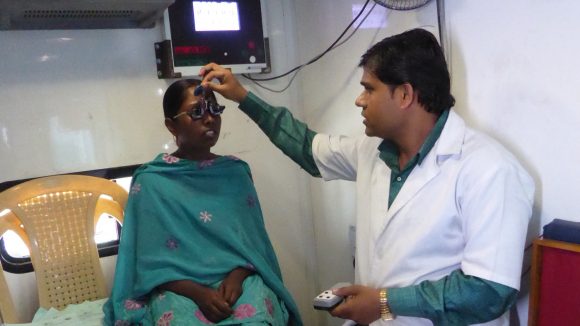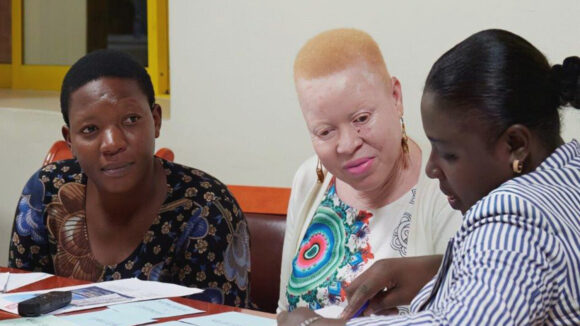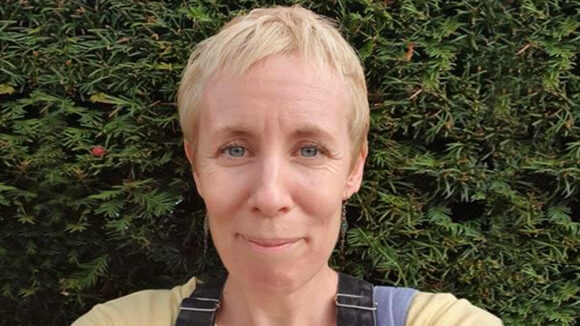Bhopal inclusive eye health project
Sightsavers’ pilot project in India aimed to ensure that everyone, even the poorest and most marginalised communities, can access eye health services.

Sightsavers’ inclusive eye health programme in Bhopal, which ran from January 2016 until October 2017, was our first eye health programme to take an inclusive approach.
The goal was to empower women, people with disabilities and other marginalised groups, particularly those living in informal urban settlements, to exercise their right to health. We also aimed to support governments and other organisations to help them create inclusive health policies.
This model will eventually be used in all future Sightsavers programmes, and we will share the knowledge we’ve gained with governments and local and international NGOs to encourage them to adopt a similar approach.
As part of the project, students painted murals to promote the inclusion of people with disabilities. Watch the video below to see the students in action.
What we’ve learned
In October 2017, at the end of the inclusive eye health pilot in Bhopal, we reviewed our work and analysed what we’d achieved. We found that:
- We must increase awareness, understanding and commitment to inclusion among all partners and at all organisational levels if we are to put our plans into action.
- There are several steps we can take to improve the accessibility of health facilities for people with physical and sensory impairments, although it’s not always straightforward.
- It’s important to involve people with disabilities in the planning process so we can raise awareness and break down stereotypes and stigma. People with disabilities should take the lead in designing and implementing inclusive ways of working, by conducting training sessions and carrying out accessibility audits.
- Working with like-minded organisations enables us to reach out to marginalised groups that may not normally be targeted. This also gives eye health staff a chance to develop adaptable, sensitive and creative ways of carrying out eye screenings.
- Collecting and analysing data about disability helps to change attitudes. When gathering data, we use the Washington Group Short Set of questions: rather than asking people if they have a disability, these questions ask whether people have difficulty performing everyday tasks such as walking, seeing, hearing, communicating or getting dressed. This can help to identify people with disabilities even though they may not classify themselves as ‘disabled’.
- An inclusive project requires leadership, time and tenacity. Change doesn’t always come easily: it’s about building momentum and having committed staff to inspire and support everyone.

Lessons from our first inclusive eye health project
Sightsavers’ Daisy Macdonald discusses what the pilot project in Bhopal has taught us.
Read Daisy's blogOur inclusive eye health programmes in depth
Read our project reportsMore about inclusive health

Collaborating to improve gender-based violence services
Women and girls with disabilities face a higher risk of gender-based violence, yet they are often prevented from receiving support due to inaccessible services.

Improving contraceptive choices and bodily autonomy for women and girls with disabilities
There is compelling evidence that improving access to contraception can reduce mortality and high-risk pregnancies, improve child health and increase protection against sexually transmitted infections.

Inclusive, accessible social behaviour change: what it is and how to do it
Sightsavers’ Cathy Stephen shares what we've learned from embedding inclusive, accessible social behaviour change processes in some of our recent projects in East and West Africa.